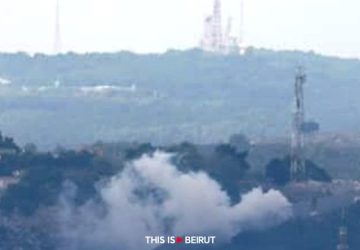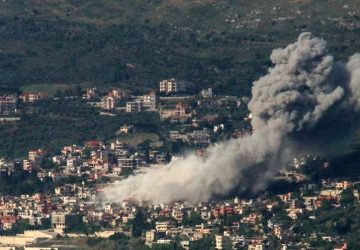Listen to the article
While Resolution 2728 that called for an immediate ceasefire in Gaza was secured by non-permanent members of the UN Security Council, security officials from the United States, Egypt, Qatar and Israel and Hamas representatives have failed to reach a truce agreement following several rounds of negotiations in Doha.
The resolution reads, “The Security Council calls for an immediate cessation of hostilities during the month of Ramadan, aiming at achieving a lasting and sustainable ceasefire. It also calls for the immediate and unconditional release of all hostages, as well as ensuring the unimpeded delivery of humanitarian assistance to address the ongoing needs…”
All council members voted in favor of the resolution, while Washington abstained, sending a clear message to Israel, which opposes any ceasefire unless it’s on its terms. These include invading Rafah to end Hamas presence and oust it from the Strip and excluding the Palestinian Islamist group from future negotiations. On the other side, Hamas insists on Israel’s withdrawal from Gaza and ensuring aid delivery.
In parallel, Washington has insisted that restoring calm along the Lebanese-Israeli border is a top US priority.
Efforts have intensified on many levels to bolster Resolution 1701 and turn it into a “permanent and sustainable ceasefire” as a prelude to shifting the focus to a political solution through diplomacy and dialogue rather than war. The messages conveyed to Lebanon have strongly emphasized a “commitment to a ceasefire in the South,” calling on Hezbollah to cease military operations in order to allow the establishment of a demilitarized zone and the joint deployment of the army and UNIFIL along the border. Lebanon was also urged to engage in negotiations on land border demarcation in parallel with Israel’s withdrawal from parts of the Shebaa Farms and Kfarchouba Hills.
For its part, Israel declined the initiative and insisted that Hezbollah lead the way by voluntarily disarming. Doing so would be in Hezbollah’s best interest; otherwise, it may be forcefully disarmed, potentially resulting in Lebanon’s destruction. US President Joe Biden’s Special Envoy Amos Hochstein will return to Lebanon depending on the response to the American initiative, which somewhat converges with the French proposal.
In the same context, the visit of the head of Hezbollah’s Liaison and Coordination Unit Wafiq Safa to the UAE aimed to push settlement talks forward, though it came under the cover of following up on the release of Lebanese Shiite nationals detained in UAE prisons. The underlying aim of Safa’s visit is to “urge the party” to participate in the broader settlement and relinquish its regional agenda.
Meanwhile, a sovereign Lebanese figure is concerned about the possibility that Washington (the “Great Satan” as labeled by Iran) give Hezbollah the upper hand in Lebanon, the way it previously did when Lebanon was placed under Syrian hegemony following the Taif Agreement. But some circles within the opposition believe that handing over the Lebanese dossier to Hezbollah is a far-fetched option. They point to the stance of the US Congress and its rejection of Iran’s “cunning” regional policy, which relies on using its proxies to advance its agenda while denying responsibility.
Members of Congress (Republicans and Democrats) squarely point to Iran’s responsibility in the regional turmoil. Had it wished to curb such activities, Tehran could have done so, as evidenced by its effort to prevent opening new fronts and escalating the conflict in southern Lebanon. Therefore, relying on Iranian proxies is not a viable option, as they operate in line with Iran’s agenda.
Arab sources argue that Iran will withhold its stance on any “offer” until the US election, despite its alignment with the Biden administration. Hence, some Lebanese sovereign figures fear that the presidential vacuum in Lebanon will linger until the end of the US presidential poll, unless Washington’s efforts—spearheaded by Qatar—to address the presidential dossier succeed, provided Hezbollah’s compliance.





